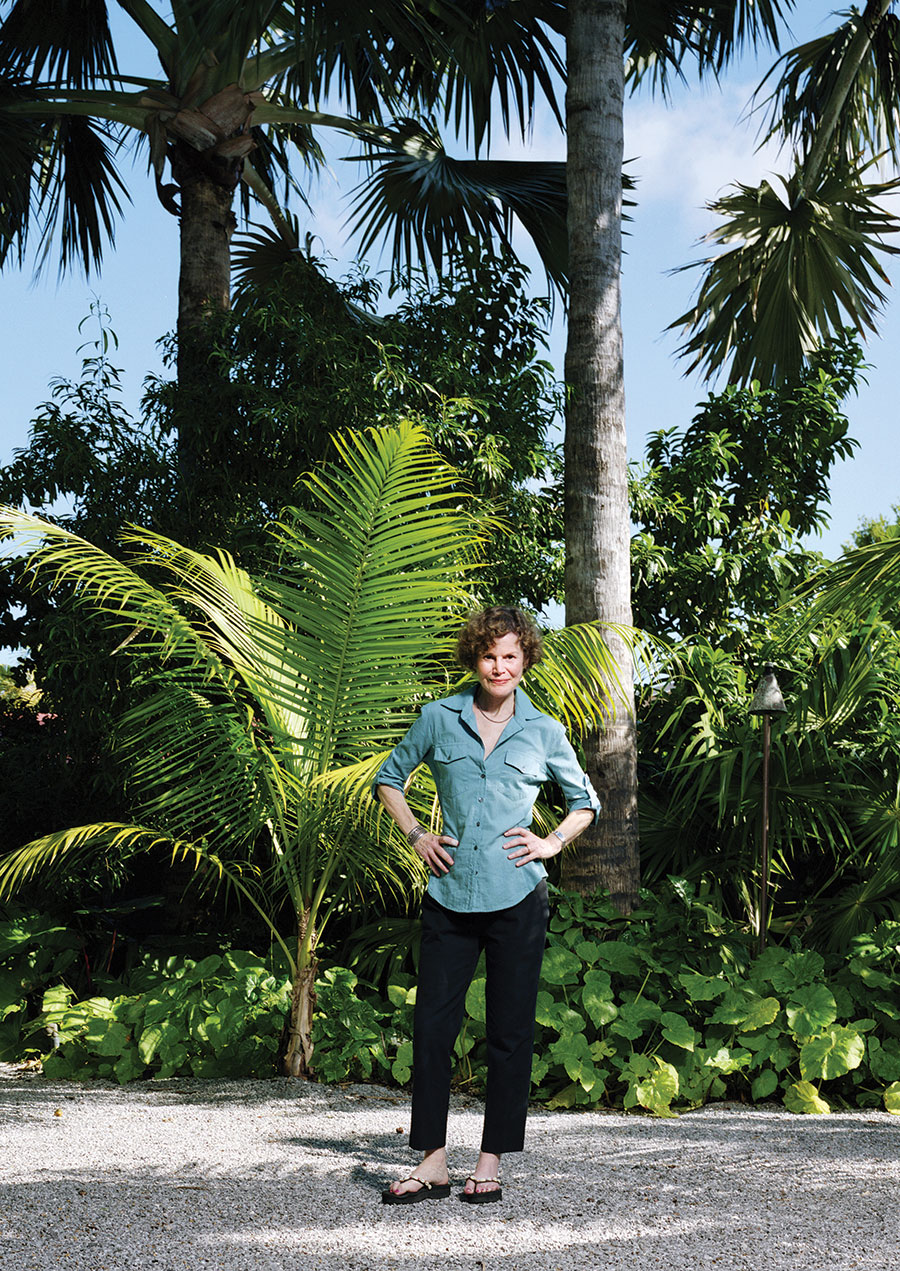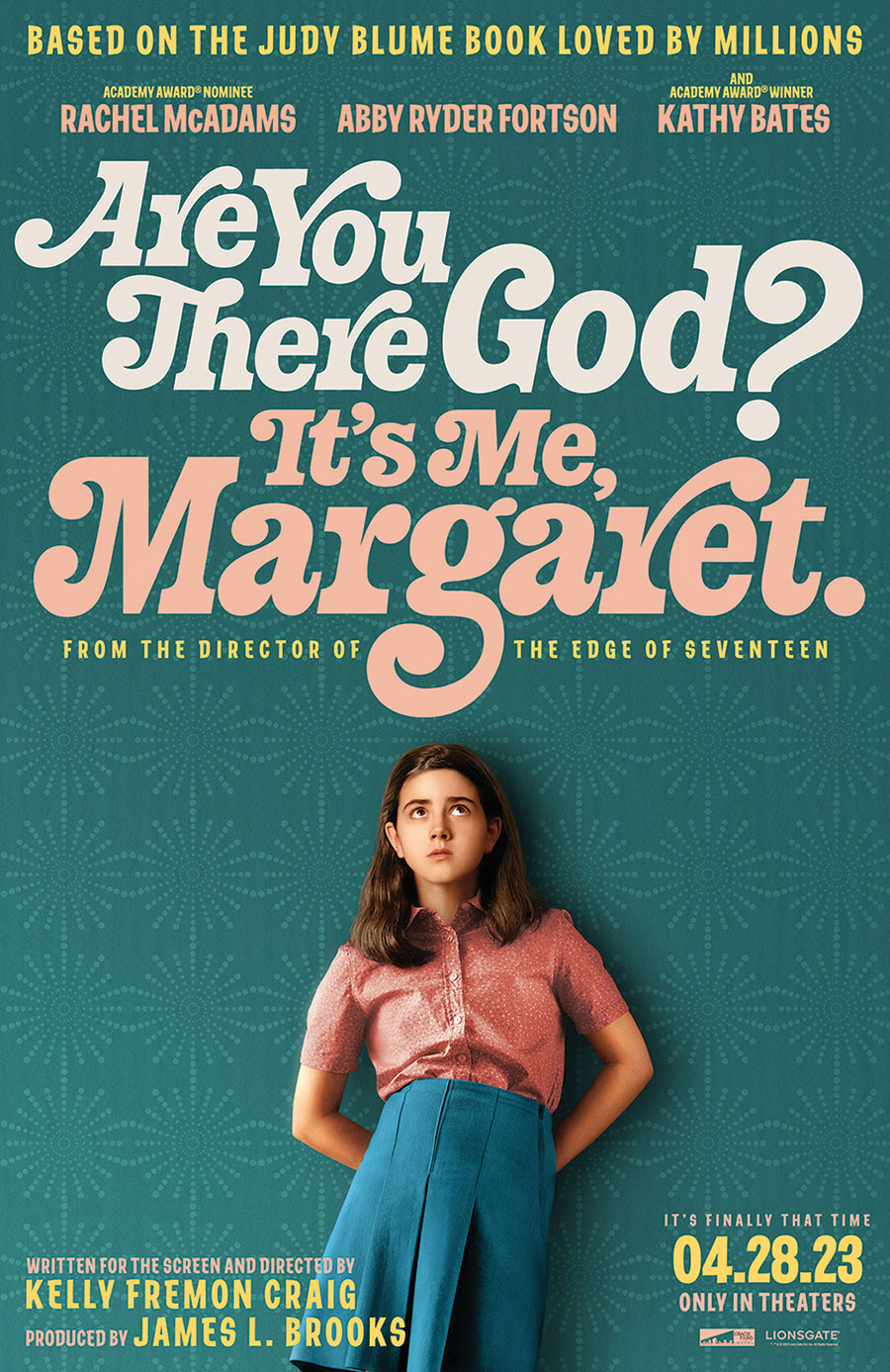‘Are You There God? It’s Me, Margaret.’: Judy Blume and Director Kelly Fremon Talk the Novel’s Film Adaptation

Author Judy Blume — pictured here on her New York apartment terrace in 1986 — worked as a producer on the first big screen adaptation of her classic novel 'Are You There God? It's Me, Margaret' and even makes a small cameo as a dog walker in the film. Photo: Oliver Morris/Getty Images
Leave it to Judy Blume to prove the adage about good things coming to those who wait. The author of the classic 1970 coming-of-age novel Are You There God? It’s Me, Margaret. gave an engaging, sympathetic voice to tween girls suffering the ravages of puberty in an era when talking openly about things like the onset of menstruation was unthinkable. A timeless smash was born.
Yet Blume refused to permit the bestselling book to be adapted for film until 2018, when she received a “charming and persuasive letter” from writer-director Kelly Fremon Craig, 42. “She was passionate about doing the movie,” Blume, 85, says in an email from Key West, Fla., where she lives with her husband, George Cooper, and runs the independent bookstore Books & Books. “But what really got to me was that she’d written and directed The Edge of Seventeen, a movie I’d seen and thoroughly enjoyed,” Blume says, referring to Fremon Craig’s 2016 young adult hit dramedy.
“The icing on the cake was that James L. Brooks [Terms of Endearment, As Good as It Gets] was her mentor and producer, and would be on this project full time. Kelly offered to come to Key West with Jim to talk it all through. They came and here we are!”
Now, 53 years after its publication, Are You There God? It’s Me, Margaret., opens in cinemas April 28 with a starry cast, featuring Rachel McAdams as Margaret’s mother, Kathy Bates as her grandmother and Abby Ryder Fortson acing the role of the story’s precocious protagonist.
The novel is written in the first person, as Margaret moves away from her beloved grandmother in New York, starts Grade 6 at a new school in New Jersey, turns 12 and must decide which of her parents’ faiths — Christian or Jewish — if any, to follow. “In the movie, Margaret’s parents and grandmother are three-dimensional people,” says Blume. “You get to know them, understand them, get angry at them, care about them. What surprises me is I can’t remember if certain movie moments are in the book or not. Kelly blended it so seamlessly.”
In a phone interview from Los Angeles, Fremon Craig says she just wanted to make a film that Blume would be proud of. “The fact that she feels that way is beyond my wildest dreams.”
Fremon Craig’s delightful adaptation, told with note-perfect period details and soaring performances, seems poised to turn a whole new generation on to a book many consider the blueprint for the young adult fiction genre. We interviewed Fremon Craig about nostalgia and the film, and Judy Blume about the book’s impact and its relevance today.

Kim Hughes: What was the hardest thing to get right with the film?
Kelly Fremon Craig: Capturing the complexity of Margaret’s spiritual search, which is so beautifully drawn in the book. That’s such a personal thing, and when you translate something to a different medium, things often have to change. But you need a north star even as you make those changes, and the north star was always, ‘Does this make me feel the way Judy Blume made me feel?’
KH: What did the book mean to you?
KFC: Judy Blume turned me into a reader and ultimately a writer. As a young person, reading about characters who felt familiar made me think, ‘Maybe I could write something.’ That was very formative. It’s surreal to be collaborating with somebody who was such a big part of my upbringing.
KH: Did you consider fast-forwarding the story to appeal to contemporary tweens, or do the central themes of puberty and religious struggle still apply?
KFC: I wanted to create a general nostalgia so that, no matter what decade you grew up in, the film feels completely timeless, and reminds people of their own childhoods. That’s how the book feels: contemporary no matter when you read it. Plus, I would have opened a vein if I saw Margaret with a cellphone in her hand. That felt sacrilegious.
KH: You have a knack for humorously chronicling young people in stormy emotional waters.
KFC: Feelings I had at that age were so heightened, it’s like they’re seared into me. When I look back at that younger version of myself, I have great compassion. The awkwardness, uncertainty, and the questions one has at that time in their life — something about it just cracks my heart open. Maybe this is some sort of therapy [laughs].
KH: Could a man have made this movie?
KFC: Ha! No! Period.

Full Blume
KH: Judy, has the book’s staying power surprised you?
Judy Blume: When I wrote the book I didn’t know if it would be published. Then, I didn’t know if readers would like it. Now it’s 50-plus years later, so yes, I am surprised and grateful to my readers for making it happen.
KH: You have a small cameo as a dogwalker in the film and are credited as a producer. Can you offer a few adjectives to describe the mood on set?
JB: Joyful. Exciting, yet calm. You could feel that something special was happening. I think we all felt it, cast and crew.
KH: You have recently done the documentary Judy Blume Forever (which premiered at the Sundance Film Festival in January) and donated your archive to Yale University’s Beinecke Library. Is this a way of having agency over your legacy?
JB: None of the above. I never think about legacy. It was time to find a home for my archive — all those wonderful letters from kids — because we were moving. One of the documentary filmmakers [Davina Pardo] had been emailing for years asking about doing a doc, but I thought I didn’t want one. Then we met in person, and she persuaded me [sound familiar?]. I think it was her passion for the project, too, plus she and her partner, Leah Wolchok, had won an Emmy for a documentary they’d done together [2015’s Very Semi-Serious, about New Yorker cartoons]. It’s just that everything happened at around the same time. I thought it might be, creatively, satisfying and fun. And it was. Also, exhausting. Now [author and New York Times columnist] Mark Oppenheimer is writing a biography, something else I thought I didn’t want. This will be the last ‘Judy’ project for a while. After all, I am 85!
A version this article appeared in the April/May 2023 issue with the headline ‘Teen ‘Spirit, p. 44.
RELATED:
Fall on Your Knees: Ann-Marie MacDonald’s Literary Classic Comes Alive in New Stage Adaptation
The Bangles Front Woman Susanna Hoffs Finds a New Calling as a Romance Writer